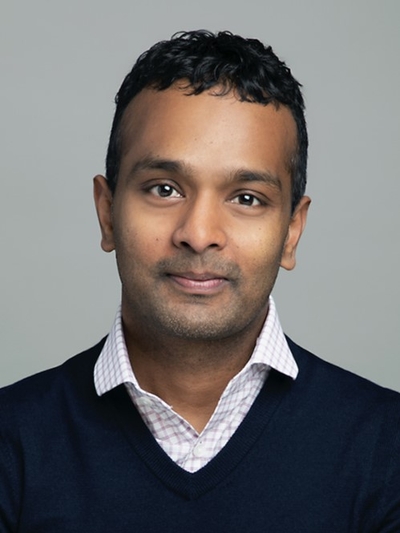Augmenting Human Auditory Perception with AI
Date: 13 June 2024 (Thursday)
Time: 9:10-10:00am HKT
Venue: Cheung On Tak Lecture Theater (LT-E), HKUST
Title: Augmenting Human Auditory Perception with AI
Speaker: Prof. Shyam Gollakota, Thomas J. Cable Endowed Professor, University of Washington
Abstract
In noisy environments, human auditory perception can be limited. Imagine yourself in a crowded room with a cacophony of sounds, yet having the ability to focus on specific sounds or remove unwanted ones based on their semantic descriptions. This capability entails understanding and manipulating an acoustic scene, isolating each sound, and associating a 2D spatial context or semantic meaning with each individual sound -- a formidable challenge even for the human brain.
In this talk, I will showcase a series of projects that aim to enhance human auditory perception using AI. I will demonstrate how AI can augment humans to tackle tasks that are difficult for the human auditory system alone.
Lastly, I will speculate on the future of augmented intelligence and how we are on the brink of a new era for intelligent mobile systems. These systems have the potential to turn science fiction into reality and revolutionize various domain, from redefining the future of billions of earbuds and headphones to the development of cutting-edge hearing aid devices.
Biography
Shyam Gollakota is a Washington Research Foundation endowed Professor at the Paul G. Allen School of Computer Science & Engineering in the University of Washington. His work has been licensed by ResMed Inc, our startup Sound Life Sciences acquired by Google, and is in use by millions of users. He was also CEO of a startup where we obtained FDA 510(k) clearance for the technology developed in my lab. His lab also worked closely with the Washington Department of Agriculture to wirelessly track invasive "murder" hornets, which resulted in the destruction of the first nest in the United States. He is the recipient of the ACM Grace Murray Hopper Award in 2020 and recently named as a Moore Inventor Fellow in 2021. He was also named in MIT Technology Review's 35 Innovators Under 35, Popular Science 'brilliant 10' and twice to the Forbes' 30 Under 30 list. His group's research has earned Best Paper awards at MOBICOM, SIGCOMM, UbiComp, SenSys, NSDI and CHI, appeared in interdisciplinary journals like Nature, Nature Communications, Nature Biomedical Engineering, Science Translational Medicine and Science Robotics as well as named as a MIT Technology Review Breakthrough technology of 2016 as well as Popular Science top innovations in 2015. He is an alumni of MIT (Ph.D., 2013, winner of ACM doctoral dissertation award) and IIT Madras.




 Facebook
Facebook LinkedIn
LinkedIn Instagram
Instagram YouTube
YouTube Contact Us
Contact Us